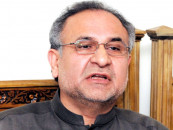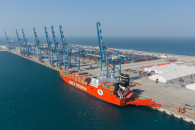A lesson to be learnt from Rwanda
Pakistan itself has witnessed ethnic violence burn the deep roots of its ideology from the very day of its inception.

Pakistan itself has witnessed ethnic violence burn the deep roots of its ideology from the very day of its inception. Pakistan – ‘a nation of the Pure’ was carved out on to the world map to allow free practice of religion and culture to the Muslims of the sub-continent. Most importantly, a separate homeland was imperative to emancipate Muslims from the tyranny of British and Muslim rule.
However, the Pakistan that we see today is facing an ethnic quandary of immeasurable magnitude. We might come up with various scholarly reasons for these clashes but the core reason of these disputes is the negligence towards our uniting factor, the idea of ‘Pakistan for all’.
Pakistan, in its history, has seen Sindhi-Muhajir, Mohajir-Pathan and Balochi-Punjabi conflicts erupt and cause the loss of innocent lives but has any conflict produced any enduring peace between ethnic identities? The answer is a blatant ‘no’. And there never-ever can be a positive product of such hatred.
But by giving up hostilities and putting an end to a worse kind of massacre Rwanda’s example in economic, political and social development will surely envisage a path for Pakistan to follow. Struck a death blow by the genocide in 1994, Rwandan economy has been strengthening since then under subsistence agriculture and has a per capita GDP of nearly $1500. Meanwhile, Pakistan is a semi-industrialised nation with a contrastingly low per capita GDP of $1200 because multi-national corporations are stepping back from investing.
Rwanda’s tourism industry is on the high and currently the country’s leading foreign exchange earning sector, while internal disputes have wretched Pakistan’s tourism industry which potentially has a million-dollar worth. On political grounds, there a lot of unique factors that show persistent development in Rwanda. The country has the world’s highest proportion of females in government positions in proportion to the overall population, while it has the lowest rate of corruption as compared to the neighbouring countries. Whereas, Pakistan observes the status of third most dangerous country for women and has a score of 127 out of 175 in the Corruption Perception Index, according to Transparency International.
After 20 years, Rwanda has stood up on its feet rather than mourning on the massacre, whereas, Pakistan is still facing the demons of ethnic violence. The time has come that we wake up and try to fix this problem with the golden principles of ‘tolerance’ and ‘brotherhood’.
Published in The Express Tribune, April 13th, 2014.



















COMMENTS
Comments are moderated and generally will be posted if they are on-topic and not abusive.
For more information, please see our Comments FAQ